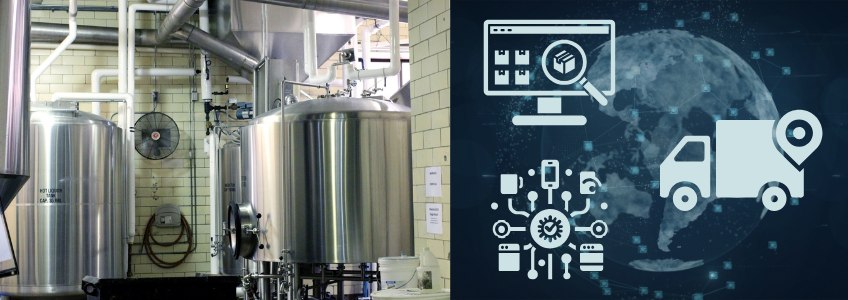
Introduction
The brewing industry, once a symbol of traditional craftsmanship, is undergoing a technological revolution. From the heart of the brewing process to the final sale, technology is transforming every aspect of the industry, enhancing efficiency, improving quality, and creating new opportunities for growth and innovation.
1. Brewing Process Optimization
- Precision Fermentation: Modern breweries leverage advanced technologies like automated fermentation systems and precise temperature control to ensure consistent and high-quality brews. Sensors monitor fermentation parameters in real-time, allowing brewers to make adjustments and optimize the process for each batch.
- Data-Driven Brewing: Brewing software collects and analyzes vast amounts of data, including ingredient quality, fermentation conditions, and sensory analysis. This data-driven approach enables brewers to identify patterns, predict outcomes, and continuously refine their brewing processes for optimal flavor and efficiency.
- Ingredient Quality Control: Spectroscopy and other analytical techniques are used to analyze raw materials like hops, malt, and yeast, ensuring consistent quality and identifying potential contaminants. This stringent quality control translates into a more reliable and consistent final product.
2. Supply Chain Management

- Inventory Management: Cloud-based software helps breweries manage inventory levels, track raw material usage, and predict future demand. This minimizes waste, reduces storage costs, and ensures timely procurement of ingredients.
- Logistics and Distribution: GPS tracking, route optimization software, and real-time data analysis streamline the distribution process. This ensures timely delivery, minimizes transportation costs, and improves overall supply chain efficiency.
- Predictive Maintenance: IoT sensors monitor the condition of brewing equipment, predicting potential maintenance issues before they occur. This proactive approach minimizes downtime, reduces maintenance costs, and ensures uninterrupted production.
3. Customer Engagement and Sales
- E-commerce Platforms: Online platforms enable breweries to sell their products directly to consumers, expanding their reach beyond traditional distribution channels.
- Digital Marketing: Social media marketing, targeted advertising, and email campaigns help breweries connect with their target audience, build brand loyalty, and drive sales.
- Customer Relationship Management (CRM) Systems: CRM software helps breweries track customer interactions, personalize marketing efforts, and build long-term relationships with their customers.
- Data Analytics: Analyzing customer data, such as purchase history and preferences, enables breweries to tailor their product offerings and marketing strategies to meet the specific needs and desires of their customers.
4. Innovation and Product Development

- Craft Beer Experimentation: The modern technology empowers brewers to experiment with new flavours, ingredients, and brewing techniques, leading to the creation of innovative and unique craft beers.
- Consumer Feedback and Collaboration: Online platforms and social media provide valuable channels for gathering consumer feedback and collaborating with customers on new product ideas.
- Brewing Intelligence: Artificial intelligence (AI) and machine learning algorithms can analyze vast datasets to identify new flavour combinations, predict consumer preferences, and optimize brewing processes for new product development.
5. Sustainability and Environmental Responsibility
- Waste Reduction: Technology can help breweries minimize waste by optimizing production processes, reducing energy consumption, and implementing water conservation measures.
- Sustainable Packaging: Breweries are exploring sustainable packaging options, such as recyclable and biodegradable containers, to reduce their environmental impact.
- Carbon Footprint Reduction: With the help of modern technology breweries can track and reduce their carbon footprint. This can be done by optimizing transportation routes, utilizing renewable energy sources, and implementing energy-efficient equipment.
Challenges and Considerations
- Data Security: Protecting sensitive data, such as customer information and proprietary brewing processes, is crucial for breweries.
- Cybersecurity: Implementing robust cybersecurity measures is essential to protect against cyber threats and ensure the integrity of their IT systems.
- Technological Integration: Integrating different technologies and software systems can be complex and require significant investment in IT infrastructure.
- Employee Training: Training employees to effectively use new technologies is essential to maximize their benefits and ensure a smooth transition.
Conclusion
Technology is playing an increasingly vital role in the modern brewing industry, driving innovation, improving efficiency, and enhancing the overall customer experience. By embracing these technological advancements, breweries can remain competitive and adapt to changing consumer demands. They can also continue to produce high-quality, unique, and enjoyable craft beers for years to come.
If you are interested to achieve similar success stories, write to us!
